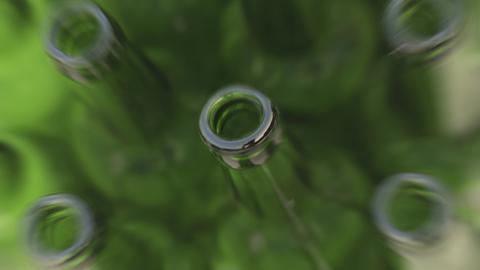New project to foster the reuse of wine bottles

28/09/2016
Catalonia consumes over nine million bottled beverages every day, and 6% of these are wine bottles. In the wine industry, these bottles are responsible for a great amount of the carbon dioxide released into the air. With the aim of reducing their carbon footprint, the reWine project will study the viability of an innovative system for the reuse of wine bottles.
The project, coordinated by the UAB Research Park, has been allocated a total budget of 991,309 Euros, 60% of which funded by the European Union. It includes the participation of the UAB spin-off Inèdit Innovació, the Waste Agency of Catalonia, the Catalan Foundation for Waste Prevention and Responsible Consumption, the Maria Nutó sanitising plant, and two wine companies: the Cooperativa Falset Marçà and Bodegas Torres.
reWINE will require the help of consumers, companies, bars, restaurants, distributors and stores to carry out a pilot programme in reusing bottles and assessing their viability. “At the moment, wine bottles are not reusable in any of the distribution channels, not even in hotels, restaurants or catering services, as happens with other beverage sectors, such as soft drinks and beers. For this reason, with this project we aim to identify the opportunities and challenges in reusing wine bottles, through experimental data which allows us to guarantee its viability at technical, sanitary and quality level and evaluate whether this can be a profitable solution for companies and the environment”, states Juan Fran Sangüesa, Head of the Area of Financing and Project Management at the UAB Research Park and coordinator of the project.
The pilot programme will take into account the complete process, from rinsing, labelling, bottling and distribution to later recollecting it from the wine cellars, recycling centres, restaurants and stores. The first step will be to validate a new glass bottle rinsing method, which consumes less water and chemical products than the conventional system, at the Maria Nutó sanitising plant, using bottles from the wine companies participating in the project.
The project plans on recovering some 100,000 bottles, which will be taken to the plant and begin a new cycle. This will help to avoid generating some 45 tonnes of glass bottle residue. The pilot programme is set to finish in June 2019.
Reusing to Reduce Environmental Impact
According to Rosa García, Director of the Foundation for the Prevention of Residues and Responsible Consumption, “reusing bottles, although a priority in the European hierarchy of residues, is clearly regressing in Catalonia and according to data from ADISCAT, returnable bottles only represent 19% of all bottles in the market and are limited to the restaurant sector. That is why this project aims to include consumers in the use of returnable bottles”.
Thus, at the same time the pilot programme is being carried out, an awareness-raising campaign will take place, with the aim of informing consumers on the advantages of reusing bottles and designing and implementing incentives for consumers to return the bottles to the stores.
Affected by Climate Change
Preparing to reuse bottles is one of the axes which must be strengthened in the coming years and after prevention, it is the most desirable option in the hierarchy of residues. In Catalonia, we want this option to be given a chance and this is contemplated in our planning. That is why we take part in type of projects,” explains Josep Maria Tost, Director of the Waste Agency of Catalonia (ARC).
Xavier Domènech, Manager of the Cooperativa Falset Març highlights: "The wine industry is heavily affected by climate change, given that the vineyards and the quality of the wine depend largely on environmental conditions. That is why we wine producers must take actions to reduce the environmental impact we generate and implement new techniques and strategies to reduce our carbon footprint. Therefore, implementing a bottle reusing system would help to achieve our objective”.
The project aims to implement this reusing bottles system in all of Catalonia and in other wine regions of Spain, by encouraging the participation of the sector's businesses and the administration.